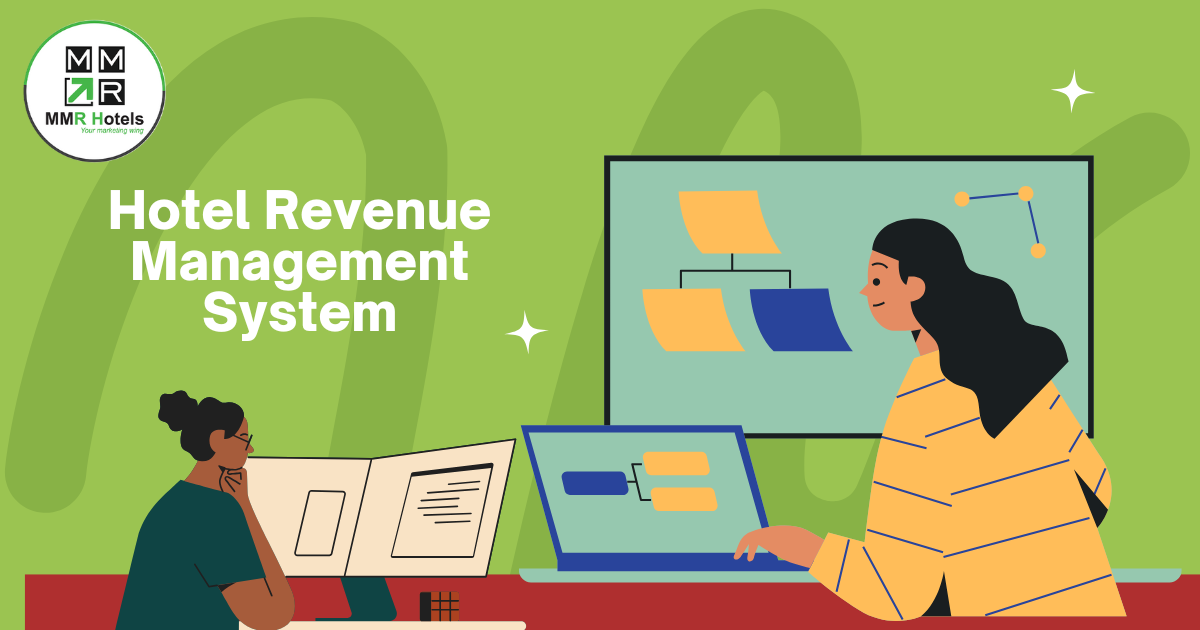In today’s competitive hospitality industry, increasing revenue and keeping guests happy is crucial. A hotel revenue management system (RMS) does this by using smart algorithms to set the best prices, predict demand, and improve profits. MMR Hotels uses advanced RMS technology to offer great value to guests and stay ahead of competitors.
What is a Hotel Revenue Management System?
A hotel revenue management system (RMS) is software that uses data to determine the best room prices. It helps hotels make informed decisions about pricing, room availability, and promotions by studying market trends, booking habits, and customer preferences. An RMS helps hotels increase revenue while providing a great guest experience.
Why is a Revenue Management System Important?
In today’s digital world, an RMS is essential. With changing market conditions, increasing competition, and evolving customer expectations, manual revenue management is no longer good enough. An RMS:
- Improves accuracy in predicting demand.
- Ensures competitive pricing with real-time market analysis.
- Increases profits by recognizing high-demand periods.
- Reduces human error in decision-making.
For MMR Hotels, using an advanced RMS has been a game-changer, leading to consistent growth and guest satisfaction.
Revenue Management System vs. Revenue Management Software
A revenue management system (RMS) is a complete strategy that includes tools, processes, and plans to optimize hotel revenue. Revenue Management Software is a part of the RMS that automates data analysis, forecasting, and decision-making. In short, the software is a component of the broader system that supports overall revenue strategy.
Key Metrics in Revenue Management
Effective revenue management focuses on specific performance metrics:
- ADR (Average Daily Rate): The average income per occupied room. Formula: Total Room Revenue ÷ Number of Rooms Sold. An RMS adjusts ADR based on real-time demand to ensure competitive pricing.
- RevPAR (Revenue Per Available Room): Revenue per available room, whether occupied or not. Formula: ADR x Occupancy Rate. An RMS uses algorithms to forecast demand and adjust RevPAR strategies.
- GOPPAR (Gross Operating Profit Per Available Room): Profitability per available room. Formula: Gross Operating Profit ÷ Number of Available Rooms. MMR Hotels’ RMS integrates cost analysis to optimize GOPPAR and ensure profitability.
Technologies and Tools at MMR Hotels
MMR Hotels’ RMS excels with innovative technologies and tools such as:
- Machine Learning Algorithms: Predict demand fluctuations.
- Dynamic Pricing Models: Adjust rates in real-time.
- Integrated Channel Management: Sync room inventory and pricing across platforms.
- Business Intelligence Analytics: Provide actionable insights through detailed reports.
- Cloud-Based Platforms: Ensure accessibility, scalability, and seamless updates.
Why MMR Hotels’ RMS Stands Out?
MMR Hotels’ RMS is unique due to:
- Data Accuracy: Advanced data validation for accurate forecasting.
- Security: Strong encryption and regular audits to protect data.
- Customizable Solutions: Features tailored to individual properties.
- User Training: Comprehensive programs to help staff leverage the system.
Ensuring Data Accuracy and Security
MMR Hotels prioritizes data integrity and security through:
- Automated Data Validation: Reduces errors.
- Encryption: Protects data during storage and transmission.
- Regular Security Audits: Identifies and mitigates potential vulnerabilities.
- Access Control: Limits system access to authorized personnel.
Training Staff on Revenue Management Systems
To maximize RMS benefits, MMR Hotels emphasizes staff training:
- Workshops and Seminars: Regular sessions to enhance RMS knowledge.
- Onboarding Programs: Tailored training for new hires.
- Support Resources: User manuals and a dedicated support team for ongoing assistance.
Challenges in Implementing a Revenue Management System
While beneficial, implementing an RMS can present challenges such as:
- Initial Costs: High investment in software and infrastructure.
- Complexity: Learning curve for staff unfamiliar with technology.
- Integration Issues: Compatibility challenges with existing systems.
MMR Hotels addresses these challenges with phased implementation, robust training, and seamless integration solutions.
Advantages of Having a Revenue Management System
An RMS provides numerous benefits, including:
- Increased Revenue: Optimized pricing strategies.
- Enhanced Efficiency: Automation reduces manual workload and errors.
- Improved Guest Experience: Competitive pricing and availability.
- Strategic Decision-Making: Data-driven insights for long-term planning.
Conclusion: The Future of Hospitality with MMR Hotels
A hotel revenue management system is essential for modern hospitality businesses. MMR Hotels sets a new standard for revenue optimization by integrating advanced technologies, analytics, and training programs. As the industry evolves, their innovation ensures continued growth and exceptional guest experiences. Whether managing a boutique hotel or a large chain, investing in a robust RMS is a step toward success.
Explore MMR Hotels’ RMS benefits and redefine your approach to hospitality management. Visit MMR Hotels to learn more.

